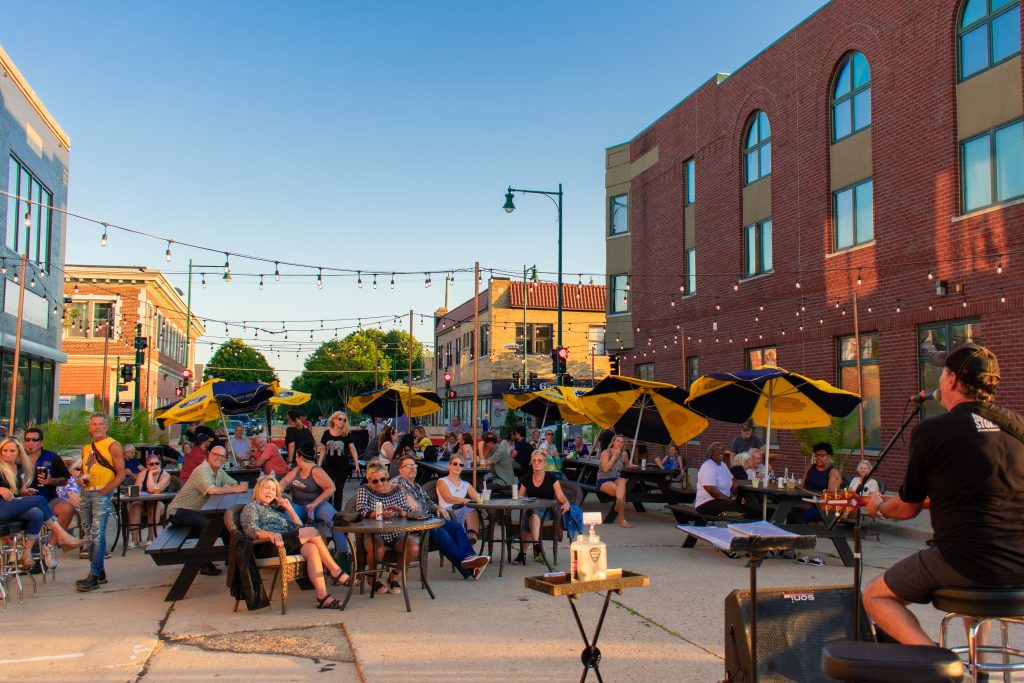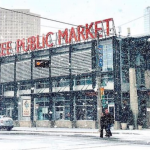What is Placemaking Anyway?
All the city news you can use.
Every day at The Overhead Wire we sort through over 1,500 news items about cities and share the best ones with our email list. At the end of the week, we take some of the most popular stories and share them with Urban Milwaukee readers. They are national (or international) links, sometimes entertaining and sometimes absurd, but hopefully useful.
Understanding the arguments of localism: In a review of two recent books on localism, Mark Chao dives into the recent increase in discussions about local decision making in the context of the politics of larger geographies. He suggests that increases in calls for local decision making should be viewed with increased scrutiny. While localism could be seen as a good outcome given state and national neglect, it also has the power to produce poor outcomes in the name of good. (Mark Chao | Urban Affairs Review)
What is placemaking anyway?: Reinier de Graaf is confused by the word ‘placemaking’. It is used in endless discussions about urbanism and planning but doesn’t have a standard definition, making it easily malleable to fit the definitions of those using it. Which in a way might be good if it creates consensus among opposing views. Will we ever see a clear definition of the term? de Graaf wonders if anyone really wants one. (Reinier de Graaf | Dezeen)
Crossings explores road ecologies: Each day in the United States, one million vertebrates are killed by vehicles on roads and the number of roads and crossings is likely to increase over the next several decades. That’s one of the main takeaways of Ben Goldfarb‘s new book ‘Crossings: How Road Ecology is Shaping the Future of Our Planet’. In this interview, Goldfarb discusses the small animals that get caught crossing, the problem of noise pollution, and how it’s possible to design better roads. (Amanda Heidt | ScienceNews)
Can companies solve the housing crisis?: The housing crisis is leading many companies to try and come up with funding solutions, but ultimately the problem is too large for a small number of companies to solve alone. Amazon, Google, Facebook, United Healthcare, and others have tried to throw money in the form of loans at the issue, but the results have been a relatively small number of units for the size of the shortage. What it does show is that steady funding for low income projects could make a difference if enough is provided. (Amanda Abrams | The Guardian)
Washington Metro’s hard charging GM: Randy Clarke came to WMATA from Capital Metro in Austin last summer and has made an impression locally as he rides the trains and gins up service increases. But a $750m budget deficit might spoil his hard work and a national impression of transit service that’s built up from DC’s specific niche of serving public servants and lawmakers. (Jared Brey | Governing)
Quote of the Week
I have done everything I could possibly do to try to work within the system. It’s tricky because, in local government, very few people are in charge of a lot of big decisions. It seems for a long time this plan for the city to have urban density, growth and development was not actually being enacted by the people making those decisions.
–Mina Starsiak Hawk, star of HGTV’s Good Bones, discussing how fights over permits with the City of Indianapolis were part of what led her to end the show.
This week on the podcast, we’re sharing a panel on CA high speed rail hosted by Roger Rudick of Streetsblog SF
Want more links to read? Visit The Overhead Wire and signup.
If you think stories like this are important, become a member of Urban Milwaukee and help support real, independent journalism. Plus you get some cool added benefits.
Urban Reads
-
Congestion Pricing Cuts Air Pollution in New York City
 Dec 14th, 2025 by Jeff Wood
Dec 14th, 2025 by Jeff Wood
-
We Think We Love to Drive. But Do We Really?
 Dec 7th, 2025 by Jeff Wood
Dec 7th, 2025 by Jeff Wood
-
Can Scott Wiener Tackle America’s Housing Crisis?
 Nov 23rd, 2025 by Jeff Wood
Nov 23rd, 2025 by Jeff Wood






















